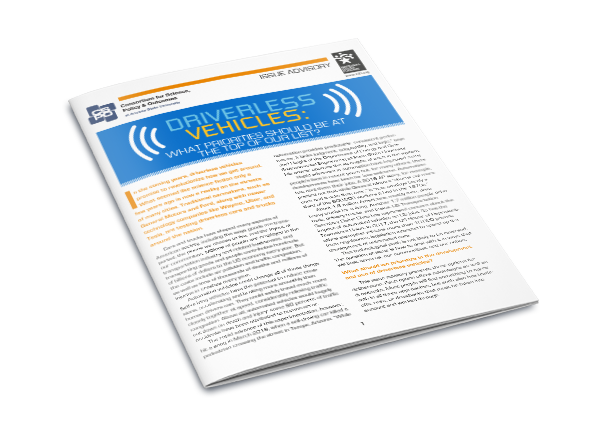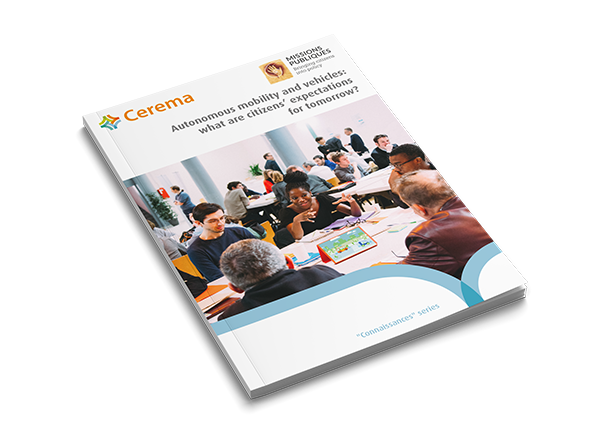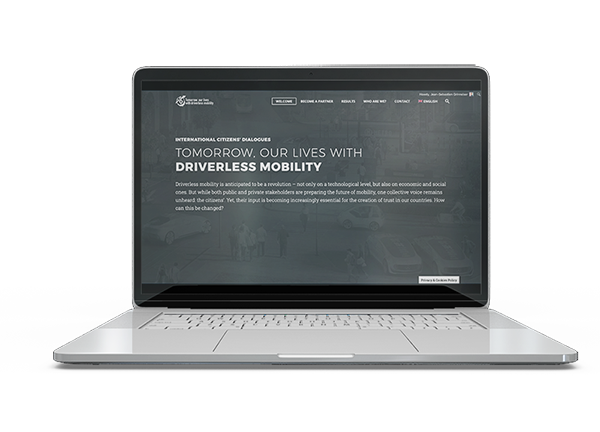CONTEXT AND GOALS
Driverless mobility is expected to revolutionize our lives in the years to come, both technologically, but also economically and socially. But as public and private stakeholders prepare the future of mobility, one collective voice remains unheard: that of the citizens. Yet their contribution is increasingly essential when it comes to building trust in our countries. How can this be changed?
Missions Publiques has initiated an international citizens’ dialogue on driverless vehicles, giving a voice to ordinary citizens who are not experts on this complex topic. Thanks to a coalition of international partners, the citizens’ dialogue was first tested in France and can now be rolled out worldwide.
“We support this process because it gives us real insight into citizens’ current perceptions of driverless mobility issues, as well as their future expectations.
Scheherazade Zekri
Director of New Mobility Services at Keolis
PROCEDURE
To devise the dialogue protocol, Mission Publiques called on experts and a number of public and private partners from Europe, the United States, Canada, and Singapore. We worked with researchers from Arizona State University and CEREMA (a French research center that advises national and local governments on environmental, mobility and spatial planning issues). Several design workshops were held in the United States and France, and online. This protocol was tried and tested in various contexts before being deployed throughout the world via partners to whom we offered prior training and support.
OUR ADDED VALUE
This is a completely new approach in terms of the topic, the process, the number of partners and participants involved.
To ensure the quality of the dialogues, Missions Publiques provided training in citizens’ dialogue methods to more than 20 national partners across the world. This was a complex process, involving different languages, cultures, and working and analysis methods, but the training courses and discussions helped establish a real stakeholder community.
This dialogue is a powerful starting point and will feed into the debate on driverless vehicles, both for private mobility companies and for public authorities at local, national, and international level.
DELIVERABLES
Working with stakeholders, experts, and researchers, we draft publications based on reports from the citizens’ dialogues held around the world. The results are then shared worldwide as part of our impact strategy. Some examples below:






